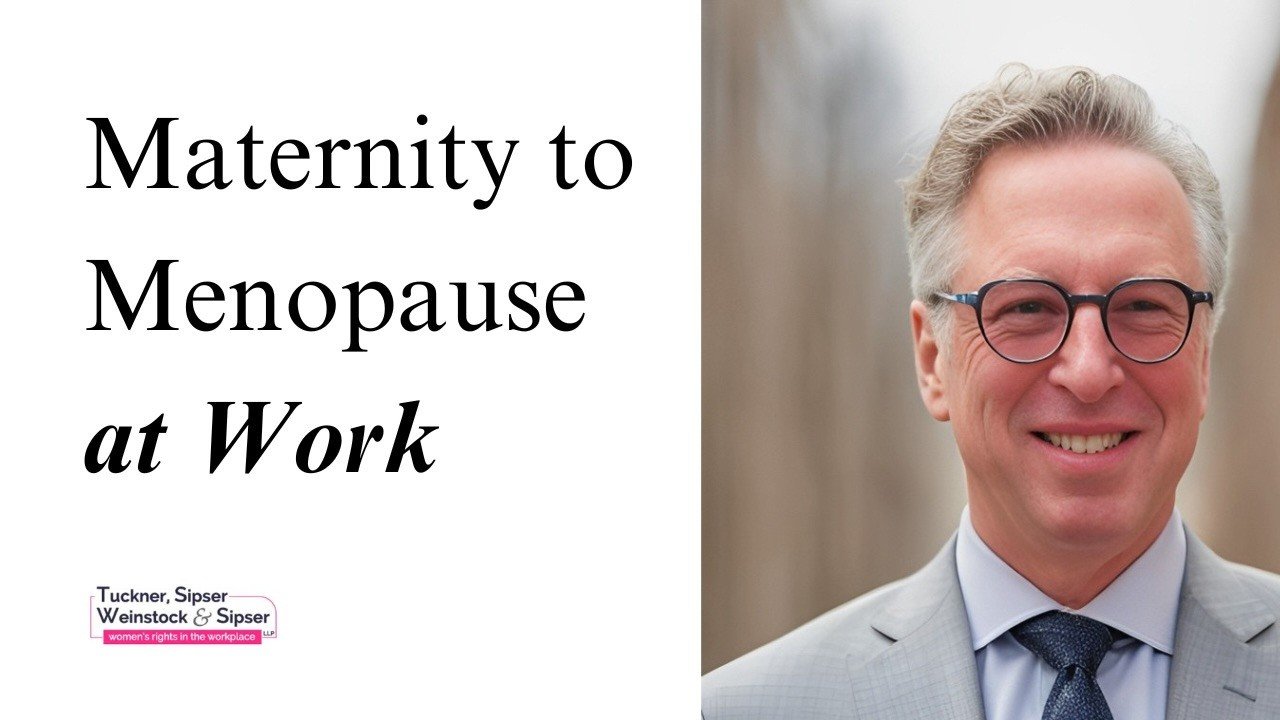My Forbes Feature on Male Allyship and Menopause in the Workplace
As a women's rights in the workplace attorney, I've long advocated for workplace equality.
So when Professor Michelle Travis, Dean’s Circle Scholar and Co-Director of the University of San Francisco Law School’s Work Law and Justice Program reached out to me for comment on her three part Forbes series on menopause in the workplace, particularly this most recent piece on male allyship and menopause awareness, I knew this was a crucial opportunity to amplify an often-silenced conversation.
Power of Male Advocacy in Women's Health
When Professor Travis approached me for her Forbes article, "How to Be a Male Ally for Your Female Colleagues Around Menopause," she understood something vital: meaningful change requires ALL voices at the table, including male allies. As someone who has dedicated their career to workplace equality, I've seen firsthand how male advocacy can transform corporate culture.
The timing couldn't be more relevant.
With the recent $275 million bipartisan bill focusing on menopause research and awareness, we're witnessing a historic shift in how we address women's health in professional settings. Additionally I am drafting Menopause Worker Fairness Act legislation with the EEOC, Menopause activist Karen Giblin, attorney Catherine Crider, physicians Corrado Altomare and Hjalmar Lagast, and a US Congresswoman who shall remain unnamed until the committee of jurisdiction has reviewed the proposed menopause protective bill that is modeled after the Pregnant Workers Fairness Act, as the legal framework is the same.
Menopause is a “related medical condition” to pregnancy and part of the reproductive life cycle, involving hormonal shifts that impact a woman’s health, and which requires similar workplace accommodations. Yet, even currently, peri- and menopause symptoms that substantially affect a major life activity, such as sleeping, or a major bodily function such as the endocrine system, are covered by the Americans with Disability Act Amendments Act of 2008, requiring an interactive process and reasonable accommodation analysis.
Key Pillars of Effective Allyship:
Professor Travis emphasized several crucial approaches for male allies:
Education First: Understanding menopause isn't just women's responsibility—it's everyone's business
Policy Advocacy: Supporting and championing workplace accommodations that recognize women's health needs
Cultural Change: Creating an environment where open dialogue about women’s health challenges is normalized
As I indicated in the Forbes article, “Where are the men? Half of us are women, and the other half surely care about the women in their lives, so when will we demand policies that recognize the full spectrum of women’s health needs as fundamental to gender equality, including menstruation, pregnancy, maternity, and menopause.”
The Business Case for Menopause Support
Let's be clear: this isn't just about doing the right thing—it's about smart business. When businesses support women through all life stages, they:
Retain valuable talent and experience
Reduce unnecessary turnover costs
Foster innovation through inclusive practices
Build stronger, more resilient teams
What's Next? Taking Action
As leaders and colleagues, we each have a role to play. Whether you're:
Advocating for policy change
Implementing workplace training
Simply starting conversations about health inclusivity
Every action counts toward creating a more equitable workplace.
Join the Conversation
I'm committed to continuing this dialogue and supporting women who are dealing with peri- and menopause related challenges that may be impacting their performance and careers. If you're interested in learning more about implementing menopause-friendly policies or discussing workplace equality, contact me: Info@womensrightsny.com 🔗 Click here to read the outstanding full third article in Professor Travis' Forbes series.
Jack Tuckner, Esq.
Tuckner Sipser, Weinstock & Sipser, LLP Women's Rights in the Workplace


